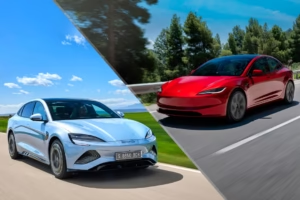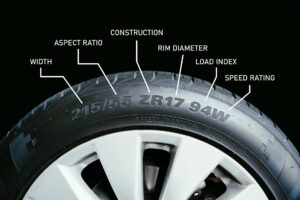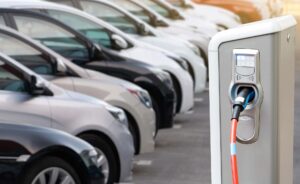With the increasing demand for more environmentally friendly modes of transportation, electric cars are here to stay. That’s why it’s the perfect time to get more familiar with the inner workings of these vehicles. Does an electric car have an exhaust pipe? How does this vehicle operate to get you from one place to another? Let’s explore these questions and share some useful tips on the way.
To put it simply – no, electric vehicles do not have an exhaust system, as there is no need for one. The power comes from the battery, which doesn’t produce exhaust gasses. But this small detail is just a piece of the puzzle. Understanding the system’s work is very important, especially if you’re considering getting one of these eco-friendly four-wheelers.
Understanding the Function of Exhaust in Traditional Vehicles
Whether you have a brand-new car, a used vehicle, or one with a salvage title, if it’s gas-powered, the internal combustion engine combined with the exhaust system is one of its integral parts.
An internal combustion engine works by burning a mixture of fuel and air within a confined space, typically a cylinder. This combustion process generates high-pressure gasses that push against a piston, causing it to move and ultimately transfer energy to the wheels of a vehicle – simply put, the summer or winter tires on your four-wheeler spin as a result of the internal combustion.
The Engine Is an Intricate System Made of Various Components
The engine relies on a series of mechanical components, such as valve stems, pistons, crankshafts, and spark plugs, to regulate the flow of fuel and air and convert the chemical energy of the fuel into mechanical energy. The process is repeated in a cycle, with each stroke of the piston – intake, compression, ignition, and exhaust – contributing to the overall function of the engine.
As the engine burns fuel, it produces exhaust gasses containing harmful pollutants such as carbon monoxide, nitrogen oxides, and particulate matter. The exhaust system helps to remove these harmful gasses from the engine and convert them into less harmful components before releasing them into the environment. Additionally, it regulates the backpressure within the engine, which affects performance, fuel efficiency, and noise levels.
It’s No Secret – Exhaust Emissions Harm the Environment
Exhaust emissions from vehicles are a major source of air pollution and have harmful effects on the environment. The gasses released from vehicle exhausts contribute to smog, acid rain, and climate change, and these pollutants can cause respiratory problems in humans. As well as harm wildlife, crops, and natural ecosystems.
Moreover, the production and transportation of gasoline and diesel fuel also contribute to greenhouse gas emissions and the depletion of natural resources. So, it’s crucial to find a way to reduce vehicle emissions. All-electric vehicles (EVs) play a significant role in solving this problem to protect the environment and human health.

How Electric Cars Work
As people look for more environmentally friendly and efficient modes of transportation, EVs are becoming increasingly popular. They currently come with a higher price tag than traditional gasoline or diesel vehicles. Advances in the evolution of cars, as well as an increasing demand among buyers, are progressively making them a more convenient and affordable option in the future.
What Are the Components of an Electric Vehicle?
Before I get into how these components generate the power needed to get you from one place to another, let’s take a look at the most important components of EVs:
- Electrical motor,
- Battery pack,
- Onboard charger,
- Power control unit (PCU),
- Thermal management system,
- Regenerative braking system,
- Electric power steering (EPS).
How Do Electric Cars Generate Power?
As you can see from the list above, EVs use an electric motor and a battery to power the vehicle instead of an internal combustion engine that’s an integral part of traditional gasoline and diesel four-wheelers.
The car battery stores electrical energy that is used to power the motor, which in turn drives the wheels. When the driver presses the accelerator pedal, a signal is sent to the power control unit (PCU), which manages the flow of electricity from the battery to the motor by converting it into alternating current (AC). So, unlike gasoline or diesel vehicles, which require a continuous supply of fuel, electric cars can operate solely on the energy stored in their batteries.
Where Does This Power Come From?
The car battery doesn’t need fuel, but it does need to be charged, and it’s a crucial part of owning these vehicles as it determines the range and performance. There are various methods for charging, from installing home stations to using public ones.
Another unique feature of EVs is regenerative braking – it allows the vehicle to recover energy during braking and store it in the battery. In other words, when the driver applies pressure to the braking pads, energy is generated and sent back to the battery storage for later use. This can significantly increase the range of your four-wheeler. It also reduces wear and tear on the brake pads and rotors.
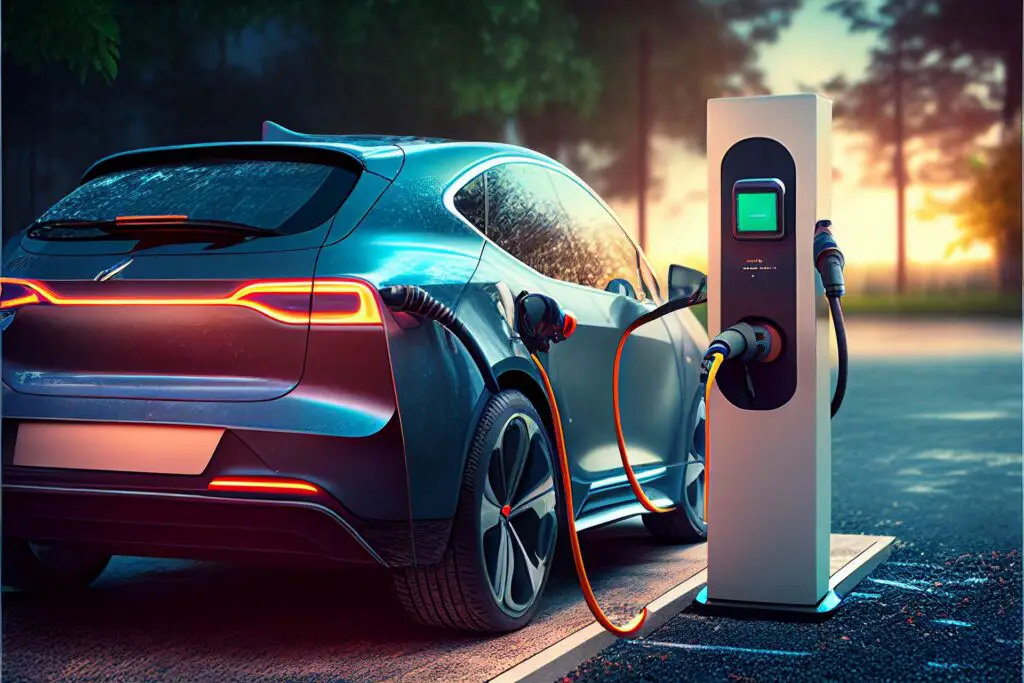
Does an Electric Car Have an Exhaust?
Once you’ve understood how EVs work, the answer to this question is simple – these vehicles don’t have an exhaust system, as there is no need for one. There are no emissions or exhaust gasses during their operation, so a system that would remove these emissions is not needed in the inner workings of these vehicles.
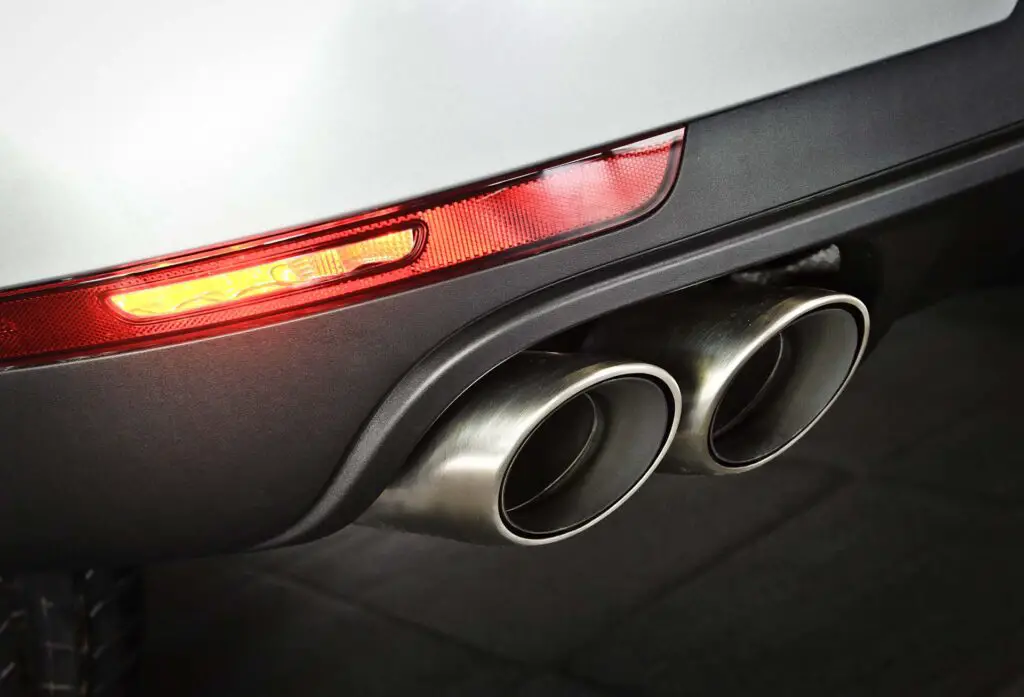
Why Electric Cars Don’t Have Exhausts?
As mentioned, when it comes to EVs, there’s simply no reason for them to have an exhaust system. No harmful emissions or pollutants are produced during the drive, and the only byproduct is heat dissipated through the cooling system. So, besides how they operate, let me walk you through other differences between these four-wheelers and the traditional gasoline-powered ones.
How Does an Electric Car Compare to a Traditional Vehicle?
EVs are considered to be the more environmentally friendly modes of transportation in comparison to their gasoline or diesel counterparts. Additionally, these vehicles generally have lower operating and maintenance costs in the long run, as there are fewer parts, as well as no oil changes, tune-ups, or emissions testing.
But the best thing you won’t ever need to do again is pay for gas. No more panicking if you’ve accidentally put the wrong gas in and trying to get it out of the car, or figuring out if you need to use dry gas. So, fuel efficiency, expressed in miles per gallon (MPG), is not applicable.
Still, there is a way to calculate the combined MPG of EVs across both city and highway driving conditions, weighted by the amount of time typically spent in each. And let me tell you – the “fuel efficiency” results are impressive. Look for yourself:
| Type of Vehicle | City MPG | Highway MPG | Combined MPG |
| Gasoline | 20-25 | 30-35 | 25-30 |
| Diesel | 25-30 | 40-45 | 30-35 |
| Hybrid | 45-50 | 50-55 | 45-50 |
| Electric | n/a | n/a | 100-120 MPGe |
What Are the Benefits of Electric Cars?
By now, it’s pretty clear that EVs come with quite a few benefits. So, here are the three main reasons why owning one is a great investment:
Environmental Impact
As mentioned before, EVs are an eco-friendly option that minimizes the negative impacts on the environment. They have a significantly lower carbon footprint and contribute less to air pollution and climate change. Additionally, the production and transportation of gasoline and diesel fuel also contribute to gas emissions, which isn’t a problem when it comes to electric vehicles.
However, producing batteries for these vehicles can also have negative environmental impacts. But as the production of renewable energy sources increases, EVs have the potential to become even cleaner and more sustainable transportation options.
Cost Savings
Besides the environmental impact, one of the main benefits of owning an EV is the potential for cost savings over the long term. They might have a higher upfront cost, but they typically have lower operating and maintenance costs, and charging the battery is significantly cheaper than filling your four-wheeler with fuel.
An additional perk you might not be familiar with is the fact that in some regions, EV owners might be eligible for government incentives, such as tax credits, rebates, and free parking or charging, which can further reduce ownership costs and is particularly handy if you live in one of the cities with the worst drivers.
Quiet and Smooth Ride
EVs are known for their quiet and smooth operation, which is a result of their design and how they operate. The lack of engine noise can make for a more peaceful and relaxing driving experience, while the smooth acceleration can result in a more comfortable ride. Additionally, the quiet operation of EVs can reduce noise pollution in urban areas, making for a more pleasant and sustainable living environment.
What Is the Future of Electric Cars?
The automotive industry is constantly evolving and adapting to new trends and technologies. One of the biggest advancements in recent years has been the shift toward electric and hybrid vehicles. Another trend is the increasing use of autonomous driving technology, which has the potential to make driving safer and more efficient by reducing the risk of human error.
So, the future of EVs looks promising – they’re here to stay and respond to the growing demand for developing more efficient and affordable models. With continued investment in research and development, these vehicles have the potential to become the dominant mode of transportation in the coming decades, helping to create a cleaner and more sustainable future for all. The absence of an exhaust pipe in electric vehicles simplifies the vehicle’s design and reduces the number of components that need maintenance
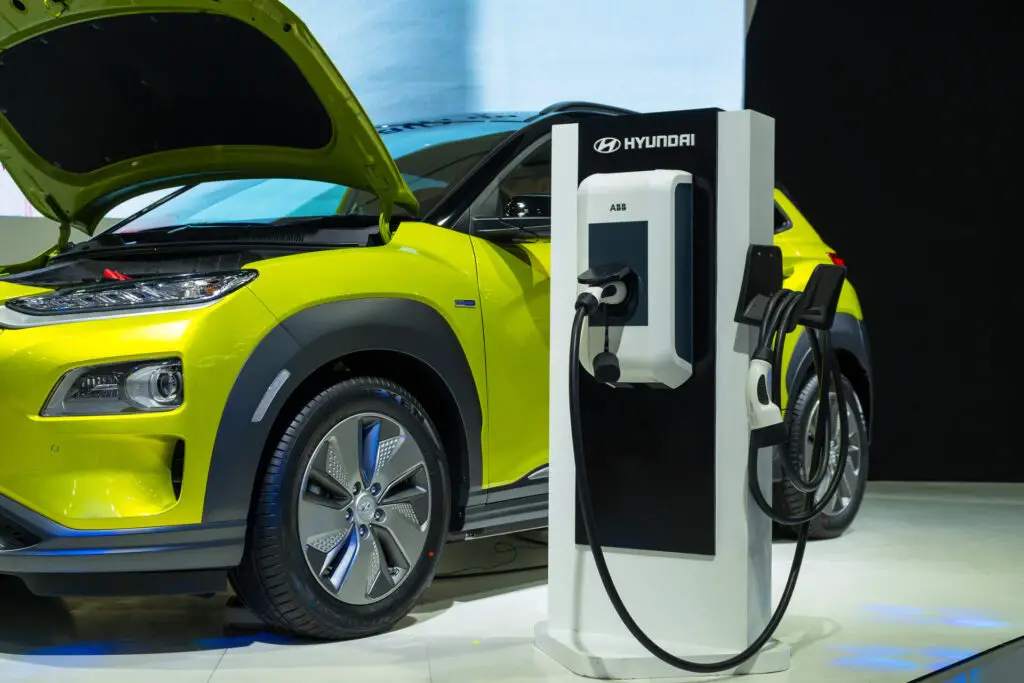
Driving Electric Cars Will Take Some Time Getting Used to but It’s Worth It
Overall, EVs are a convenient way to get around that can help you save money and do your part for the environment. Sure, they might take some getting used to, but they’re a smart investment if you’re looking for a cleaner, more efficient four-wheeler. So, no matter if you’re a hardcore environmentalist or just looking for a sweet ride, an EV is worth considering. After all, it might be our ticket to a more sustainable future.

